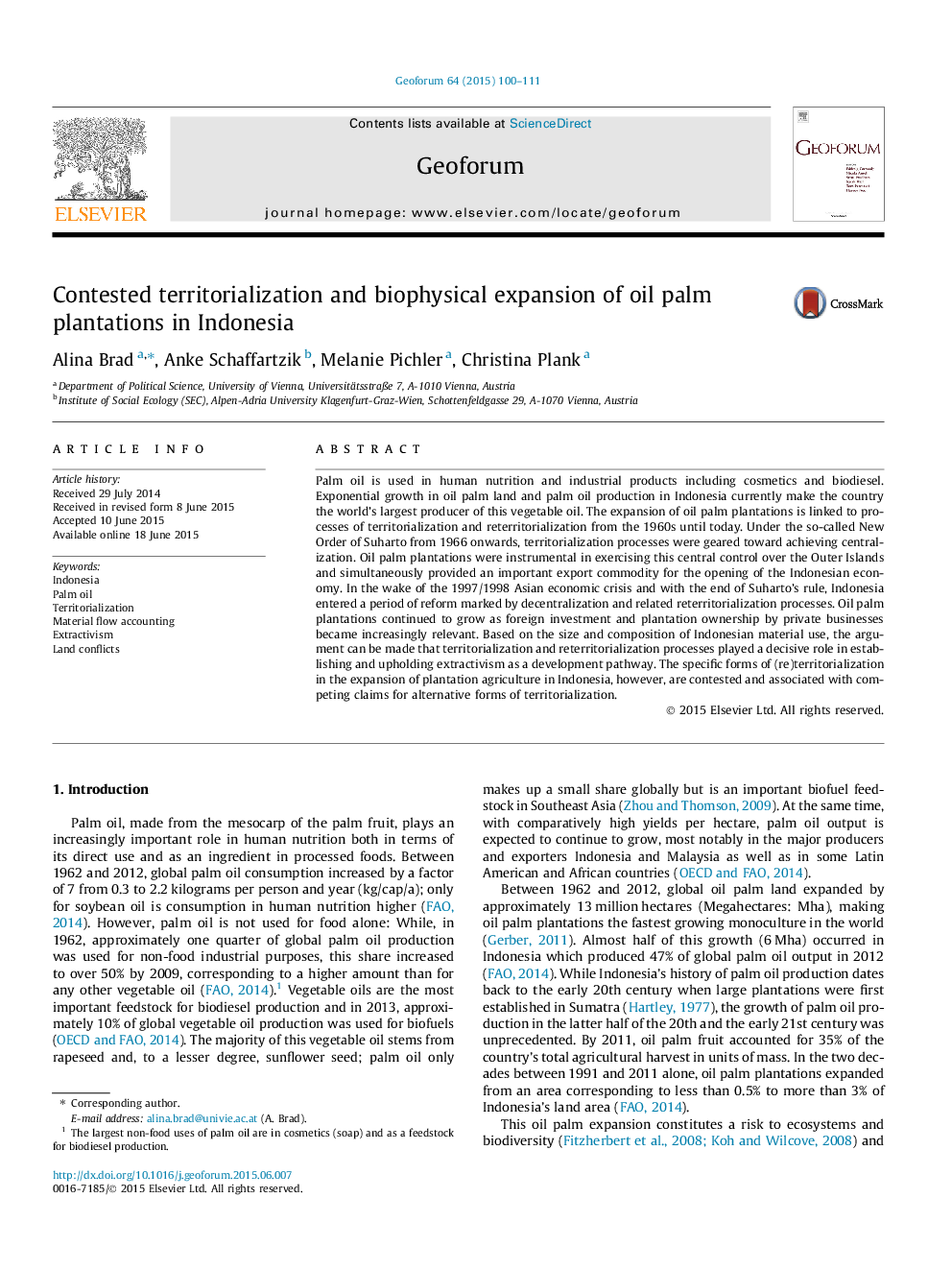| کد مقاله | کد نشریه | سال انتشار | مقاله انگلیسی | نسخه تمام متن |
|---|---|---|---|---|
| 5073673 | 1477125 | 2015 | 12 صفحه PDF | دانلود رایگان |
- Oil palm plantations in Indonesia have grown exponentially since the 1960s.
- Plantation expansion is tied to territorialization and reterritorialization.
- Distinct phases of centralization and decentralization are identified and linked to (re)territorialization.
- Oil palm plantation expansion forms part of an extractive regime.
- Territorialization is heavily contested and competing claims to land are made.
Palm oil is used in human nutrition and industrial products including cosmetics and biodiesel. Exponential growth in oil palm land and palm oil production in Indonesia currently make the country the world's largest producer of this vegetable oil. The expansion of oil palm plantations is linked to processes of territorialization and reterritorialization from the 1960s until today. Under the so-called New Order of Suharto from 1966 onwards, territorialization processes were geared toward achieving centralization. Oil palm plantations were instrumental in exercising this central control over the Outer Islands and simultaneously provided an important export commodity for the opening of the Indonesian economy. In the wake of the 1997/1998 Asian economic crisis and with the end of Suharto's rule, Indonesia entered a period of reform marked by decentralization and related reterritorialization processes. Oil palm plantations continued to grow as foreign investment and plantation ownership by private businesses became increasingly relevant. Based on the size and composition of Indonesian material use, the argument can be made that territorialization and reterritorialization processes played a decisive role in establishing and upholding extractivism as a development pathway. The specific forms of (re)territorialization in the expansion of plantation agriculture in Indonesia, however, are contested and associated with competing claims for alternative forms of territorialization.
Journal: Geoforum - Volume 64, August 2015, Pages 100-111
